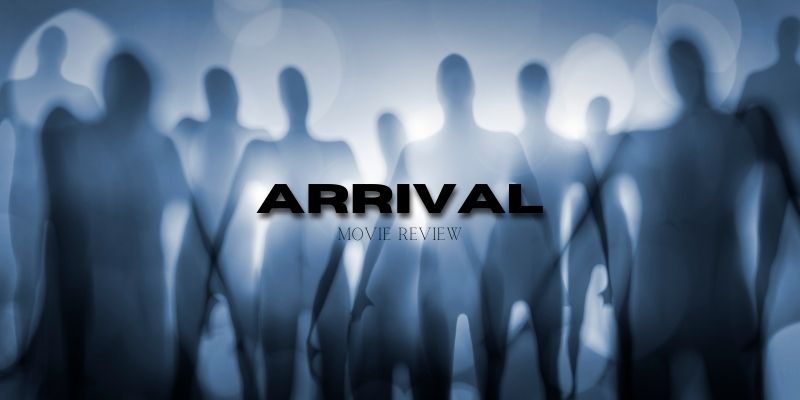ARRIVAL – Revisiting in case you also missed it!
This post contains plot spoilers about Arrival. It is advised to watch it before you read further or just enjoy the read if you don’t mind the spoilers or have watched it already!
I recently watched the movie Arrival on Netflix and am honestly surprised how I gave this masterpiece of a movie a miss.
Credit when it’s due, even if it is a few years down the line. Arrival is a 2016 American science fiction drama directed by Canadian filmmaker Denis Villeneuve, starring Amy Adams, Mark O’Brien, and Frank Schorpion. This movie is an adaptation of the short story “Story of Your Life,” written by Ted Chiang in 1998. With 264 nominations and 66 wins, Arrival is the ultimate sci-fi movies of all time, in my opinion, and surely one not to miss.
The book was inspired by Fermat’s Principle Of Least Time and Variational Principles Of Physics. Well, it is a fairly complicated concept for those who are not familiar with the physics mumbo-jumbo, but it broadly touches upon the concept of time being a non-linear entity. In writing the story, the writer had in mind the following quote of the great physicist Albert Einstein: “The distinction between the past, present, and future is only a stubbornly persistent illusion.”
..how the events of the future remain unchanged but what changes are your attitude towards the outcome..
I do have to mention that while the movie Arrival is indeed an excellent adaptation, it does deviate from the original underlying message of the book. The movie gives an impression of the storyline being related to time travel and precognition, whereas the book describes how the events of the future remain unchanged but what changes are your attitude towards the outcome.
Just like any sci-fi movie based on scientific concepts touching certain aspects of human experience, interpretations can vary, and the appeal is unique to each. But the movie is thought-provoking and will make you question aspects of your life if the information was laid out differently.
Intrigued? Then, by all means, read on (or maybe watch the movie?). The plot revolves around linguistic professor Louise Banks (Amy Adams), who is asked to communicate with the aliens descended on Earth in gigantic spaceships that touched down in 12 locations around the world (112 in the book). How do you start communication without language? How do you know their purpose of visit? With a blank paper to start with and tons of questions along with the underlying fear of the unknown, she gets down to business. With the fight against time, she deciphers the meaning of the alien language that changes the meaning of her own life astonishingly.
…the story beautifully portrays the way communication happens, the way language shapes how we think, interpret, derive conclusions, and take actions.
I do not aim to give away major spoilers if I haven’t already, but I would like to appreciate how the story beautifully portrays the way communication happens, the way language shapes how we think, interpret, derive conclusions, and take actions. “Language is the foundation of civilization. It is the glue that holds people together. It is the first weapon drawn in a conflict.” an excerpt from the first book on linguistics by Louise Banks character.
It explains the nature of humans and their relationship with fear and trust. “We don’t know if they understand the difference between a weapon and a tool.” by Louise Banks’ character.
It is about the more significant questions in life, whether the journey is important or the destination. It makes you think about your life’s choices, decisions, acceptance and living as if each moment is as precious as the next.
“If you could see your whole life from start to finish, would you change things?”
By Louise Banks’ character
Lastly, it gives an alternative viewpoint of our understanding of time. If there was no beginning or end, if the mind was non-linear or circular, you never arrive at a particular destination; what would matter is the journey. “Despite knowing the journey… and where it leads… I embrace it… and I welcome every moment of it.” by Louise Banks’ character.
If you have made it this far, read the next part only if you have watched or intend to watch the movie.
Interestingly, Louise explains in the movie that she names her daughter “Hannah” as it is a palindrome; it is spelled the same backward as it is forward. Also, the opening few scenes of the film are simultaneously the beginning and the end. The start and finish are done this way intentionally as it is based on the movie’s theme and the fact that the movie’s events exist in a non-linear timeline.
Top 3 Must Watch – Best Chinese drama
